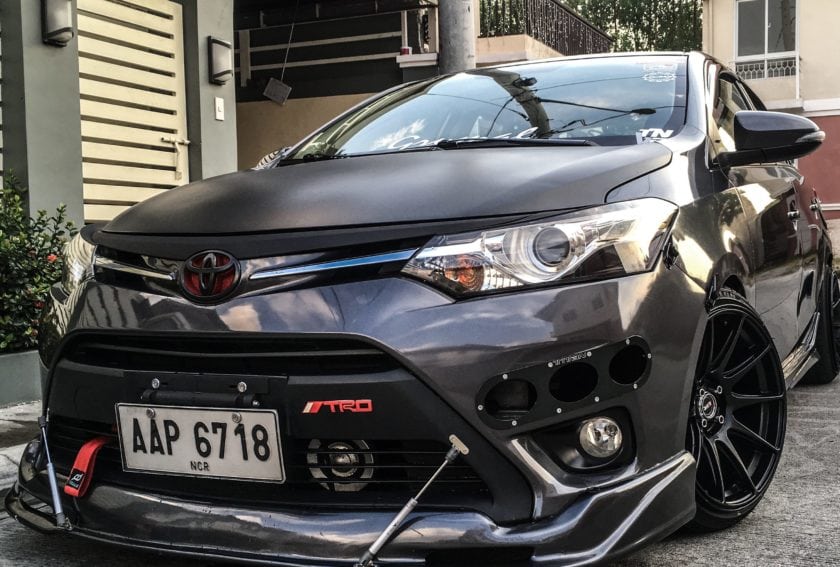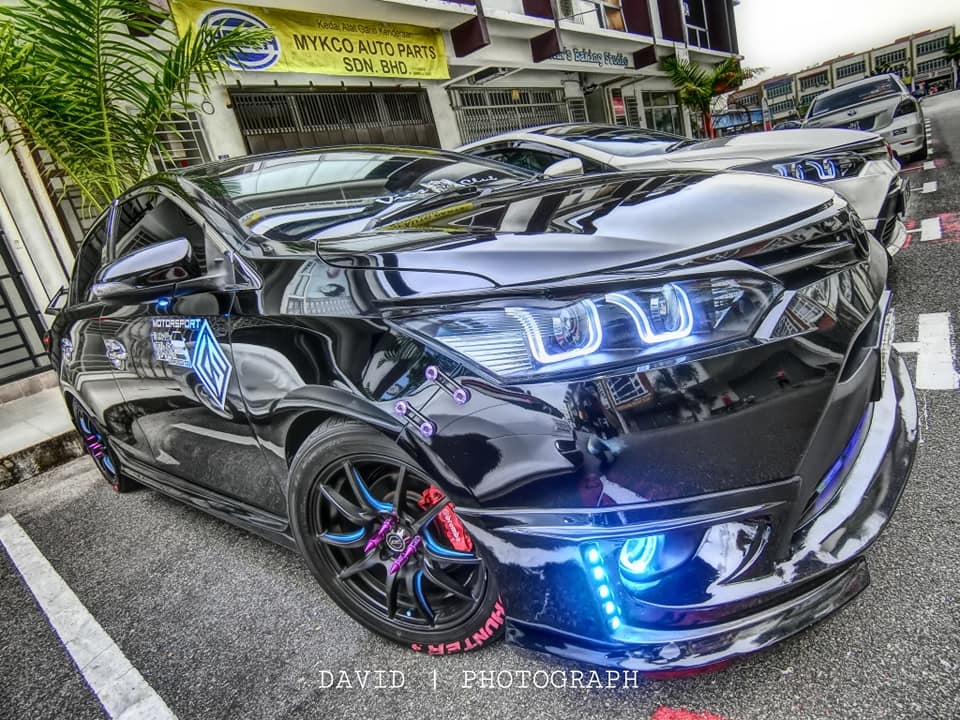Oldsmobile Aurora, 2001
The Oldsmobile Aurora was a luxury automobile made by the Oldsmobile division of General Motors and launched in 1995 to replace the discontinued Toronado 2-door personal luxury coupe. It was a luxurious 4-door sedan riding on the same Cadillac-derived G platform as the 2-door Buick Riviera. Since the demise of the Ninety Eight in 1996, the Aurora became the flagship Oldsmobile. Also, in a way it is the successor of the Ninety-Eight or the Eighty-Eight (at least for 2000). A V6-powered version was introduced in 2001 to supplant the Eighty-Eight and the LSS. It was introduced to bring new life to Oldsmobile, but the first few years of Aurora did not even feature the Oldsmobile name. There was even a rumor at the time that the name of the whole Oldsmobile marque would be changed to simply "Aurora."
Second Generation
Oldsmobile's original intention for the second generation was to move the Aurora further upmarket, retaining its V8-only drivetrain and sharing a platform with the new Buick Riviera, as the original Aurora had done. This would have created more room within the Oldsmobile lineup for a four-door Eighty-Eight successor known as the Antares. However, Buick dropped its Riviera development plans and fiscal trouble found Oldsmobile, so Oldsmobile was forced to re-engineer the Antares into an acceptable Aurora in short time. The Aurora was downsized as the successor for the H-body Eighty-Eight on the short-wheelbase G-body (on which the Buick LeSabre and Pontiac Bonneville joined, as they used to be on the H-body). The 2001 Aurora is the product of that re-engineering.
The second-generation Aurora used a new, less-expensive version of the G platform with a shorter wheelbase. Unlike the original Aurora, this platform was shared with other GM divisions, with Buick offering the Park Avenue and LeSabre, and Pontiac offering the Bonneville.
Oldsmobile also offered a V6 engine in the Aurora for the first time. The V6 in question was the LX-5, a cut-down relation of the DOHC Aurora V8, dubbed the "Shortstar." The V6-powered Aurora was produced for the 2001 and 2002 model years only, with production ceasing in mid-2002.
The second generation Aurora went into production on November 10, 1999. The last Aurora 3.5s rolled off the assembly line on June 21, 2002. The Final 500 Aurora 4.0s ended production on March 28, 2003. The Orion, Michigan plant built a total of 71,722 second-generation Auroras (53,640 in 2001, 10,865 in 2002, 7,217 in 2003).
Engines
* 2001-2002 LX5 3.5 L (214 in³) V6, 215 hp @ 5600 rpm, 230 ft·lbf torque @ 4400 rpm.
* 2001-2003 L47 4.0 L (244 in³) V8, 250 hp @ 5600 rpm, 260 ft·lbf torque @ 4400 rpm.
Second Generation
Oldsmobile's original intention for the second generation was to move the Aurora further upmarket, retaining its V8-only drivetrain and sharing a platform with the new Buick Riviera, as the original Aurora had done. This would have created more room within the Oldsmobile lineup for a four-door Eighty-Eight successor known as the Antares. However, Buick dropped its Riviera development plans and fiscal trouble found Oldsmobile, so Oldsmobile was forced to re-engineer the Antares into an acceptable Aurora in short time. The Aurora was downsized as the successor for the H-body Eighty-Eight on the short-wheelbase G-body (on which the Buick LeSabre and Pontiac Bonneville joined, as they used to be on the H-body). The 2001 Aurora is the product of that re-engineering.
The second-generation Aurora used a new, less-expensive version of the G platform with a shorter wheelbase. Unlike the original Aurora, this platform was shared with other GM divisions, with Buick offering the Park Avenue and LeSabre, and Pontiac offering the Bonneville.
Oldsmobile also offered a V6 engine in the Aurora for the first time. The V6 in question was the LX-5, a cut-down relation of the DOHC Aurora V8, dubbed the "Shortstar." The V6-powered Aurora was produced for the 2001 and 2002 model years only, with production ceasing in mid-2002.
The second generation Aurora went into production on November 10, 1999. The last Aurora 3.5s rolled off the assembly line on June 21, 2002. The Final 500 Aurora 4.0s ended production on March 28, 2003. The Orion, Michigan plant built a total of 71,722 second-generation Auroras (53,640 in 2001, 10,865 in 2002, 7,217 in 2003).
Engines
* 2001-2002 LX5 3.5 L (214 in³) V6, 215 hp @ 5600 rpm, 230 ft·lbf torque @ 4400 rpm.
* 2001-2003 L47 4.0 L (244 in³) V8, 250 hp @ 5600 rpm, 260 ft·lbf torque @ 4400 rpm.












No comments:
Post a Comment